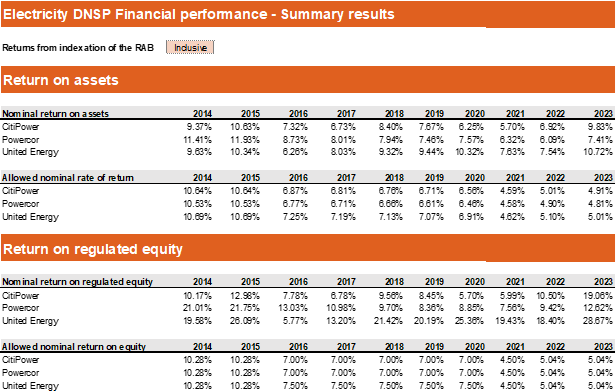Monopolies want AER to bend over backwards
NECA is today calling on the government to intervene in process of the Australian Energy Regulator to prevent the continuous and ongoing creep of the monopoly Electricity Distribution Networks (DNSPs) into contestable electricity service markets.
Why today?
Today the Australian Energy Regulator (AER) opened consultation1 for CitiPower, Powercor, and United Energy (collectively referred to as CPU) to own, install and maintain Electric Vehicle Charging Infrastructure as network assets. This proposal is dressed up as ‘trial’ to ‘test implementing and maintaining public EV charging stations in an efficient and cost‑effective way, to expedite the installation of EV charging points.’
In a similarly dysfunctional outcome, the AER recently approved an exclusive waiver for PlusES (a wholly owned subsidiary of Ausgrid) to roll out 1,000 pole mounted EV chargers, under the ‘sandbox’ provisions (trialing the viability of a particular solution). Private providers are understandably concerned that one dog in the race has effectively been given a substantial head start.
NECA will of course make a submission to this process, however, we have also been attempting for over a year now to get the AER to engage with and rectify the ability of the DNSPs in the National Electricity Market (NEM) to exploit weak Ring-Fencing Guidelines and ineffective enforcement to the detriment of energy consumers and legitimate businesses.
Add to this, the documented consistent and accelerating excessive revenue outcomes of DNSPs in the NEM (National Energy Market).
In this context, NECA have to raise the alarm and call on the ministers responsible to act on behalf of the public and the economy to secure effective regulation of the sector before more gorging takes place.
Inaction of the AER
In September 2024, NECA submitted formal correspondence to the AER for an urgent review of the Ring-Fencing (Distribution) guideline, calling out how genuinely ineffective those rules are in preventing DNSP owned businesses from entering and profiting from unregulated activities using their regulated staff paid for by Australia’s inflated power and energy bills. To date – we are yet to receive a formal response or indication of a path forward.
The DNSP’s talk up the benefits of waivers handing themselves greater control of the electrification of our communities. However, as AER don’t appear to examine or question the potential harm to competition they are effectively complicit in green washing anti-competitive behaviour.
With respect to super-profits, NECA have not been alone in pointing out that the distribution networks in the NEM have also been scoring super-profits from consumers over the past decade. For example, the IEEFA report – Power Prices can be fairer and more affordable, published in November 20232 – found that electricity networks extracted $2 billion of supernormal profits in FY22. Updated data from the AER’s own reports indicate that a substantial increase in those unearned profits occurred in the following year.
Why should energy consumers subsidise the cost and risk of infrastructure for a small number EV owners?
The answer is obvious – they shouldn’t.
When there is already a healthy population of innovative Australian providers and small businesses that can deploy, operate and maintain the equipment more efficiently than the DNSPs, are willing to analyse and manage the risk of investing, and are not incentivised to over-invest in underperforming units to increase a guaranteed return on investment, then there should be no reason to consider the CPU’s application as anything other than a green-washing joke on consumers.
Consumers are already losing out
In the CPU context, consumers should be concerned that their DNSPs have not been constrained to a reasonable rate of return for a decade.
 3
3
Consumers in Western Sydney should be incensed that their DNSP collected an estimated average of $2020 in additional revenue per customer from 2020-20234.

We’re long overdue for an intervention!
NECA FULLY SUPPORTS THE EV ROLLOUT — BUT NOT LIKE THIS
Let’s be clear. NECA backs the rapid deployment of EV infrastructure. It is critical to our clean energy future, but it must be built by local contractors, using Australian-made equipment, in a fair and competitive market.
Both Sides of Politics Must Act—Now
This is a test of national leadership. NECA is calling on Prime Minister Anthony Albanese and Opposition Leader Peter Dutton and all political parties to immediately commit to:
• Reviewing all of the waivers issued by the AER’s
• Halting all future waivers, sandbox trials, and exemptions.
• Launching a full Parliamentary Inquiry into DNSP conduct and regulatory failures; and
• Overhauling the AER and its Ring-Fencing framework, with real enforcement powers and public accountability.
The message from Australian contractors, manufacturers, small business and consumers is the same: stop the power grab, defend competitive markets, and back local jobs.
This issue goes beyond EVs. It goes to the very heart of who will build—and who will profit from—Australia’s clean energy future.
If government fails to act now, it won’t just be competition that’s lost. It will be credibility, trust, and the chance to deliver a future truly made in Australia.
1https://tinyurl.com/4tbuuhru 
2https://ieefa.org/sites/default/files/2023-11/Power%20prices%20can%20be%20fairer%20and%20more%20affordable_Nov23_1.pdf 
3https://www.aer.gov.au/documents/aer-financial-performance-data-2024-electricity-networks
4 CONTESTABLE NSW ELECTRICITY SERVICES MARKETS - Is monopoly network regulation protecting competition?